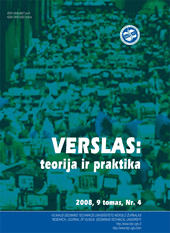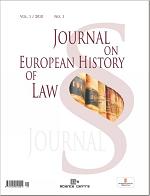
Title structure of the translated EU legislation and other documents
Verstinių Europos Sąjungos teisės aktų ir kitų dokumentų pavadinimų tipai
Keywords: Translation; administrative style; legislative documents
The article is an attempt to analyse the main grammatical structures employed in translating the titles of legal acts and other documents into Lithuanian, to compare them with the titles of Lithuanian legal acts as well as to identify major tendencies in their translation. The structure of the titles of translated documents is more diverse than the structure of Lithuanian legal acts. The title structure of European legislative acts is often determined by the layout requirements which are common to all Member States and which all institutions translating texts have to observe. In the Lithuanian translations of documents the following major structural types of the titles have been identified: word combinations with the genitive case, prepositional, infinitival and gerundial constructions, descriptive titles, constructions with a subordinate attributive clause and constructions with an active participle. Prepositional and participial constructions are the most frequent (the preposition dėl prevails). The least frequent are infinitival and gerundial constructions. The article focuses on an increasingly evident tendency to personification in the administrative style. Its distribution in the Lithuanian translations of legal acts tends to adopt the following pattern: grammatically correct and metonymic personifications in the titles, such as reglamentas, iš dalies keičiantis kitą reglamentą regulation amending another regulation), shift towards entirely metaphorical expressions. The following constructions are linguistically completely unacceptable: direktyva, išdėstanti aprašą (Directive setting out the schedule); reglamentas, įgyvendinantis straipsnį (Regulation implementing article); reglamentas, skelbiantis konkursą Regulation opening a standing invitation); sprendimas, priimantis įsipareigojimą (Decision accepting an undertaking); susitarimas, įsteigiantis asociaciją (Agreement establishing an association) etc. Constructions containing active participles used in the titles of the legislation and other documents are inappropriate from the point of view of the Lithuanian administrative style, as well as from the standpoint of terminology creation and preservation of its national identity. This tendency ought to be interrupted since it could have negative impact on the entire system of the Lithuanian language.
More...

